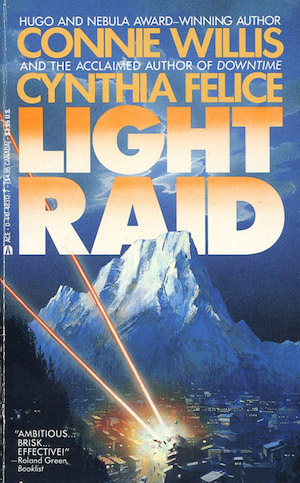The current prime minister of Canada recently asserted: “If the United States no longer wants to lead, Canada will.” While the prime minister clearly means “lead” in the sense of setting an example while pursuing new alliances, it does raise the amusing prospect of a global Pax Canada, under which every human is provided all the peace, order, good government, and poutine that they could want.
Canada has about half a percent of the global population and, while it does well economically on a per capita basis, that tiny population means Canada accounts for a bit over one percent of the global GDP. Those aren’t numbers that suggest world domination is in the cards1.
That said, a quick glance at history shows a number of polities that have leveraged some asset (a slight technological edge, convenient location, organizational prowess2) to bat well out of their league. The Mongol Empire, which at its height might have had a hundred million subjects—a quarter or a third of the human race!—started from a base of one or two million people, proportionally the same fraction of world population in the 13th century as Canada has in the 21st. It’s not unreasonable to think that circumstance and cunning could deliver similar success to a comparatively low-population polity3.
Of course, science fiction authors have realized this. Thus, some comparatively low-population regions have enjoyed disproportionate influence in fiction, thanks to luck, cunning, and the fact the author was on their side. Consider these five examples.
Texas
In Fritz Leiber’s 1969 A Specter Is Haunting Texas, perfidious Texans used their control of the US government to provide the petite state of Texas4 with a disproportionate fraction of America’s bomb shelters. Thus, Texas emerged from the Atomic War in far better shape the rest of the United States—a state of affairs they were happy to exploit.
By the time woefully misinformed space beatnik Christopher Crockett La Cruz descends from the lunar colonies to secure ownership of the Lost Crazy-Russian Pitchblende Mine, bombastic, smugly ignorant, hormone-enhanced, cowboy-cosplaying Texans rule almost all of North America. This is in fact less than entirely ideal, especially from the perspective of the Mexicans enslaved by Texas, and no doubt would be undesirable from the Canadian perspective as well… if any Canadians had survived, which it does not appear they did.
The key thing to understand about Leiber’s hate letter to Lyndon Baines Johnson is that it’s a hate letter to the Lyndon Baines Johnson who sent kids off to Vietnam, not the Lyndon Baines Johnson responsible for rural electrification, electoral reform, and the Great Society. The first LBJ seems to have entirely eclipsed the second, at least for the duration of this novel.

Denmark
In Harry Harrison’s 1970 In Our Hands, The Stars (AKA The Daleth Effect) plucky little Denmark is literally handed the keys to the stars by defecting Israeli scientist Arnie Klein. Having discovered a novel phenomenon (the Daleth Effect of the title), Klein is terrified by its destructive potential. Only a government of particularly sterling character, preferably one not perpetually on the brink of war with its neighbors, can be trusted with the secret of the Daleth Effect. For Klein, Denmark is the obvious candidate.
Thus, Denmark finds itself the guardian of a secret that can deliver everything from cheap space flight to weapons of mass destruction. Also, it already possesses the research and industrial base needed to turn theory into technology. For a brief, shining moment, Denmark is poised to become a great power not merely on Earth, but in space as well.
The flaw that Klein and his allies overlooked (but author Harrison did not) is that the great secret was not in the details of the Daleth Effect, but that the Daleth Effect existed at all. Denmark’s era of dominance in the field of Daleth Effect applications proves exceptionally short-lived.

New Zealand and Polynesia
In Poul Anderson’s Maurai sequence—“The Sky People” (1959), “Progress” (1962), “Windmill” (1973), and the novels There Will Be Time (1972) and Orion Shall Rise (1983)—our current civilization violently collapsed, leaving a depopulated, primitive world. New Zealand and Polynesia formed a core of redevelopment, giving rise to the Maurai Federation.
I don’t think Anderson ever gave economic or population figures for the Federation, but the land area available and the skeptical views held by the Maurai regarding population and industrial development would have imposed a firm cap. Nevertheless, the Maurai enjoy a long period of ascendency, which they use to provide other nations with prudent guidance of the sort the other nations would have wanted, if only those nations were sensible.
Yes, eventually the Pax Maurai collapses. This is Poul Anderson. Everything dies. Also, while the Maurai no doubt think of themselves as splendid fellows, and the limits they impose on others as manifestly reasonable, there are exchanges like the following one from “Progress”:
Breathless, Alisabeta reached for her glass. Lorn rubbed his chin. “Mmm… Maybe,” he said. “If industrialism can feed and clothe people better, doesn’t it deserve to win out?”
“Who says it can?” she argued. It can feed and clothe more people, yes. But not necessarily better. And are sheer numbers any measure of quality, Lorn?”
…which cannot have endeared the Maurai to the legions of impoverished people kept on the brink of starvation by Maurai foreign policy.

Quebec
Connie Willis and Cynthia Felice’s 1989 Light Raid is short on backstory details. However, what is clear is that North American borders have been redrawn and that the Western States and the Commonwealth are (reluctant) allies. Why are they allies? Because Quebec.
Despite having (at present) about two percent of the North American population, Willis and Felice’s Quebec is an aggressive military powerhouse, able to conduct an intermittent but sustained war with the Anglophone nations sufficiently ferocious to induce the other nations to ally against Quebec. Elbows up!
As the events are told from the perspective of an Anglophone, it’s not entirely clear what Quebec thinks is going on. Is it trying to conquer the rest of North America in a bid to expand the Canadiens’ fanbase? or is it simply preventing a repeat of the Plains of Abraham?

The Canary Islands (or possibly the Azores)
Olympus, featured in Masamune Shirow’s manga Appleseed (1985 to 1989), owes its superpower status to three factors. First, the artificial island nation (located somewhere near the Canary Islands and the Azores) sat out many of the exciting events of the 21st and 22nd century, which ranged from nation-depopulating wars to a giant meteor impact in China. Second, the island nation’s technological base (and its willingness to apply it) is unparalleled. Third, Olympus’ ruling class is as pragmatic as it is visionary.
The only tiny fruit fly on this particular quasi-utopian sundae is that while Olympus seems mercifully free of corruption5, and while all of the major players in Olympus are rational, various factions favour distinctly different public policies. As violence is one of the tools used by the ever so practical Olympians, it is possible that had Shirow continued the manga series, Olympus would have been brought down by its internal contradictions.

Yes, I could have mentioned Tau Zero’s Swedish world empire or The Mouse That Roared’s Grand Fenwick or Arslan’s Turkmenistan… but I’ve mentioned all of them here before. No doubt there are some other worthy examples I’ve overlooked—feel free to mention them in comments below.

